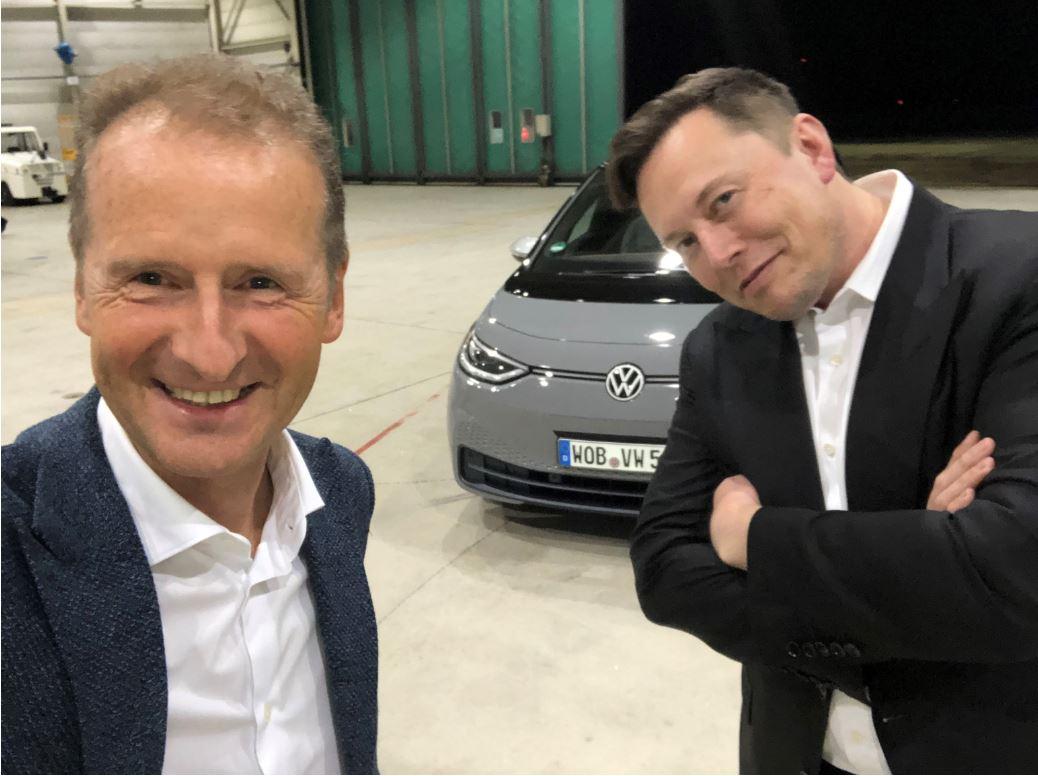
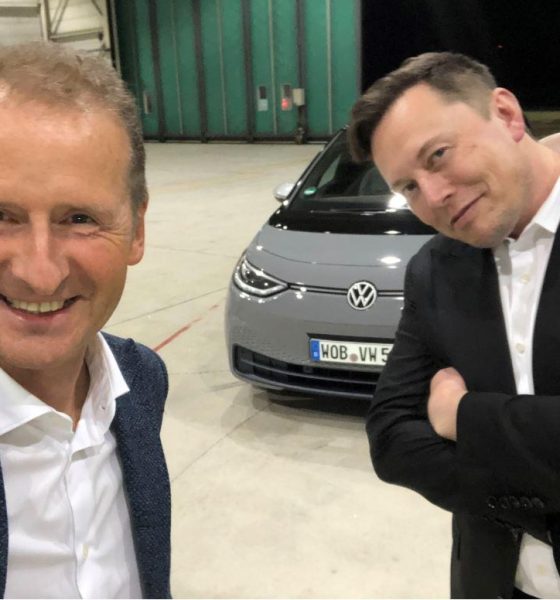
News
Tesla, VW lead the charge for EV dominance as EU sets plan to end combustion engines in 2025
Europe’s current emissions standards have already proven difficult for legacy automakers as evidenced by Honda joining Tesla and Fiat Chrysler’s pool deal recently. But if the EU Commission does decide to push through with its hyper-strict recommended Euro 7 standards, traditional automakers may find it even more difficult to stay competitive in the face of EV manufacturers like Tesla or legacy OEMs who have a leg-up in electric car production and development, like Volkswagen.
All of Tesla’s vehicles are tailor-fit for the strict Euro 7 standards, thanks to its S3XY line, all of which are battery-electric. Tesla recently started exporting Giga Shanghai’s Model 3 vehicle to Europe, thereby increasing its delivery capacity. Gigafactory Berlin seems to be on schedule to start Model Y production in 2021 as well.
On the other side of the aisle, Volkswagen’s ID.3 seems to be selling well in Europe and the ID.4, a crossover, is poised for a release soon. Volkswagen is also working on the other entries of its ID line, such as the ID.5 sedan and estate, the ID.6 SUV, and the ID.7 van. Other all-electric cars from Volkswagen AG, such as the Porsche Taycan and the Audi e-tron, are also being received quite well in their respective segments.
Other traditional OEMs have announced electric vehicles for the future. For instance, Daimler’s Mercedes-Benz brand has announced the EQV, EQS, EQE, and EQA, expanding its existing EV range. Things will likely not be easy for legacy automakers that are only getting their feet wet with EVs, however, as it isn’t just emissions standards that they have to contend with when it comes to releasing new energy vehicles. With each passing year, competitors like Tesla continue to improve the technologies in its vehicles, which also raises the EV standards for traditional OEMs.
The recommendations from the panel of experts in the EU Commissions’ recent study suggests that new car sales in the region will likely be geared towards electric vehicles in the near future. Even if the recommendations end up getting watered down as they are implemented, the shift to electric cars will definitely be palpable within the coming years. And amidst these changes, companies that have already laid the groundwork for their respective electric car programs will likely come out with an advantage.
Tesla would be wise to take advantage of Europe’s apparent war against the combustion engine. With Gigafactory Berlin poised to come online next year, Tesla would have the opportunity to saturate the market with the Model Y, its highest-volume car vehicle to date. The release of the company’s yet-to-be-announced $25,000 EV would also go a long way towards accelerating the mass adoption of all-electric cars. Tesla has not hinted at a concrete release date for its $25,000 car, but with the EU Commission’s stance, it may be a good idea for the electric car maker to accelerate the upcoming vehicle’s release.
Companies like Volkswagen, for their part, would best be advised to ensure that the rollout of its all-electric cars are done with no more delays. The ID.3 experienced severe problems with its software, resulting in the all-electric car’s rollout being pushed back. Amidst Europe’s push to end the internal combustion engine, Volkswagen must ensure that the succeeding vehicles in the ID family are rolled out in a much smoother manner.

News
Anti-Tesla union leader ditches X, urges use of Threads instead
Tesla Sweden and IF Metall have been engaged in a bitter dispute for over two years now.
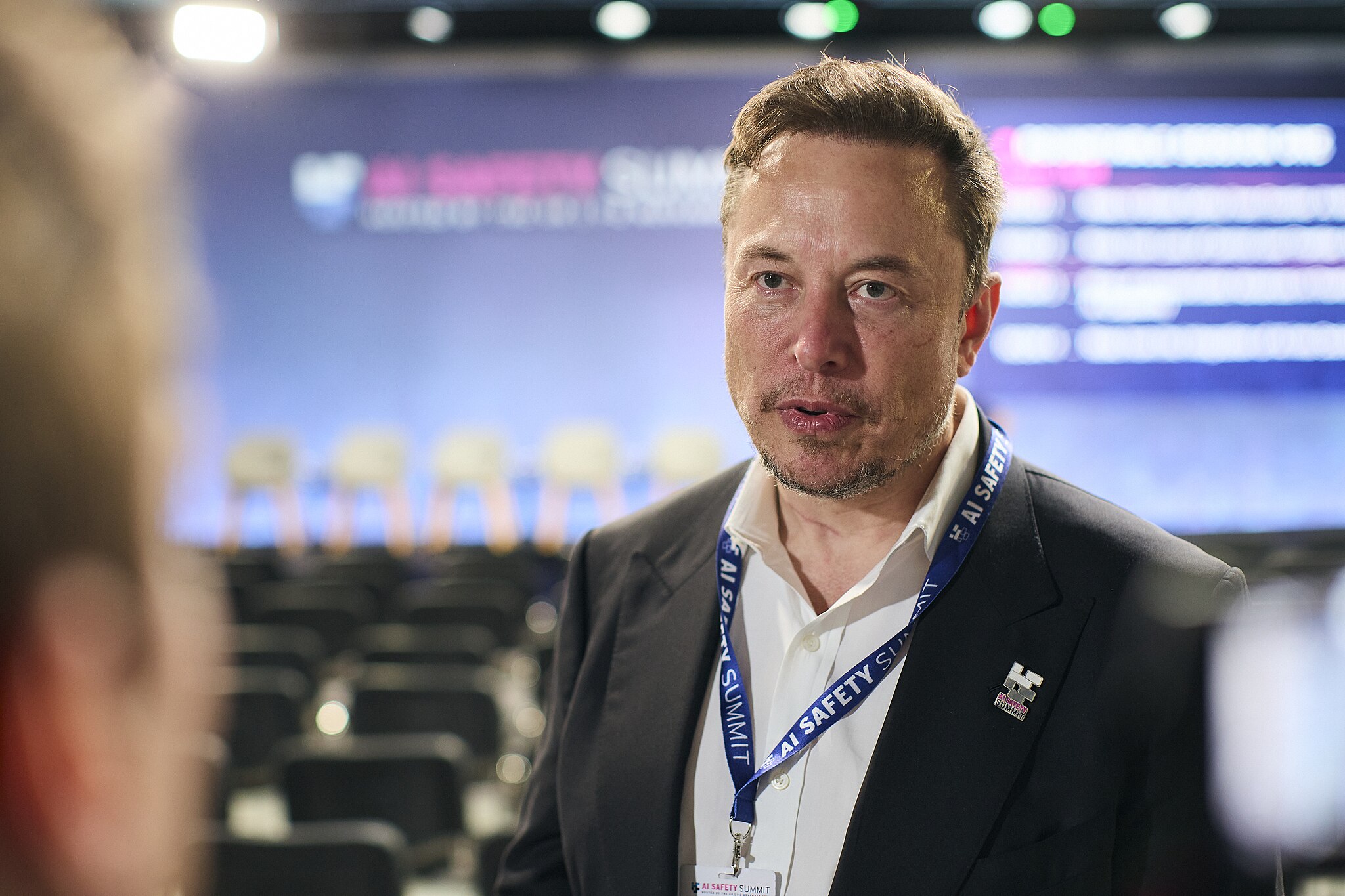
Marie Nilsson, chair of Sweden’s IF Metall union and a prominent critic of Tesla, has left X and is urging audiences to follow the union on Meta’s Threads instead.
Tesla Sweden and IF Metall have been engaged in a bitter dispute for over two years now.
Anti-Tesla union leader exits X
In a comment to Dagens Arbete (DA), Nilsson noted that her exit from X is not formally tied to IF Metall’s long-running labor dispute with Tesla Sweden. Still, she stated that her departure is affected by changes to the platform under Elon Musk’s leadership.
“We have stayed because many journalists pick up news there. But as more and more people have left X, we have felt that the standard has now been reached on that platform,” she said.
Jesper Pettersson, press officer at IF Metall, highlighted that the union’s departure from X is only indirectly linked to Tesla Sweden and Elon Musk. “Indirectly it does, since there is a lot of evidence that his ownership has caused the change in the platform to be so significant.
“We have nevertheless assessed that the platform had value for reaching journalists, politicians and other opinion leaders. But it is a microscopic proportion of the public and our members who are there, and now that value has decreased,” Petterson added.
IF Metall sees Threads as an X alternative
After leaving X, IF Metall has begun using Threads, Meta’s alternative to the social media platform. The union described the move as experimental, noting that it is still evaluating how effective the platform will be for outreach and visibility.
Pettersson acknowledged that Meta also does not operate under Sweden’s collective bargaining model, but said the union sees little alternative if it wants to remain visible online.
“In a perfect world, all large international companies would be supporters of the Swedish model when they come here. But unfortunately, the reality is not like that. If we are to be visible at all in this social media world, we have to play by the rules of the game. The alternative would be to become completely invisible, and that would not benefit our members,” he said.
Elon Musk
Elon Musk confirms SpaceX is not developing a phone
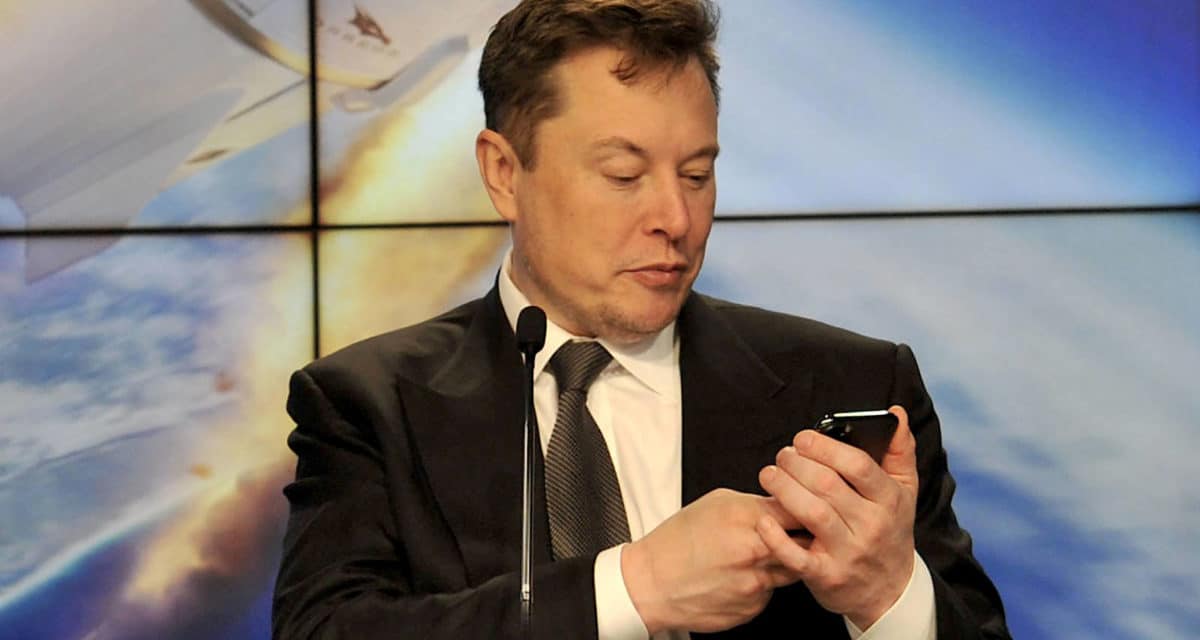
Despite many recent rumors and various reports, Elon Musk confirmed today that SpaceX is not developing a phone based on Starlink, not once, but twice.
Today’s report from Reuters cited people familiar with the matter and stated internal discussions have seen SpaceX executives mulling the idea of building a mobile device that would connect directly to the Starlink satellite constellation.
Musk did state in late January that SpaceX developing a phone was “not out of the question at some point.” However, He also said it would have to be a major difference from current phones, and would be optimized “purely for running max performance/watt neural nets.”
Not out of the question at some point. It would be a very different device than current phones. Optimized purely for running max performance/watt neural nets.
— Elon Musk (@elonmusk) January 30, 2026
While Musk said it was not out of the question “at some point,” that does not mean it is currently a project SpaceX is working on. The CEO reaffirmed this point twice on X this afternoon.
Musk said, “Reuters lies relentlessly,” in one post. In the next, he explicitly stated, “We are not developing a phone.”
Reuters lies relentlessly
— Elon Musk (@elonmusk) February 5, 2026
We are not developing a phone
— Elon Musk (@elonmusk) February 5, 2026
Musk has basically always maintained that SpaceX has too many things going on, denying that a phone would be in the realm of upcoming projects. There are too many things in the works for Musk’s space exploration company, most notably the recent merger with xAI.
SpaceX officially acquires xAI, merging rockets with AI expertise
A Starlink phone would be an excellent idea, especially considering that SpaceX operates 9,500 satellites, serving over 9 million users worldwide. 650 of those satellites are dedicated to the company’s direct-to-device initiative, which provides cellular coverage on a global scale.
Nevertheless, there is the potential that the Starlink phone eventually become a project SpaceX works on. However, it is not currently in the scope of what the company needs to develop, so things are more focused on that as of right now.
News
Tesla adds notable improvement to Dashcam feature
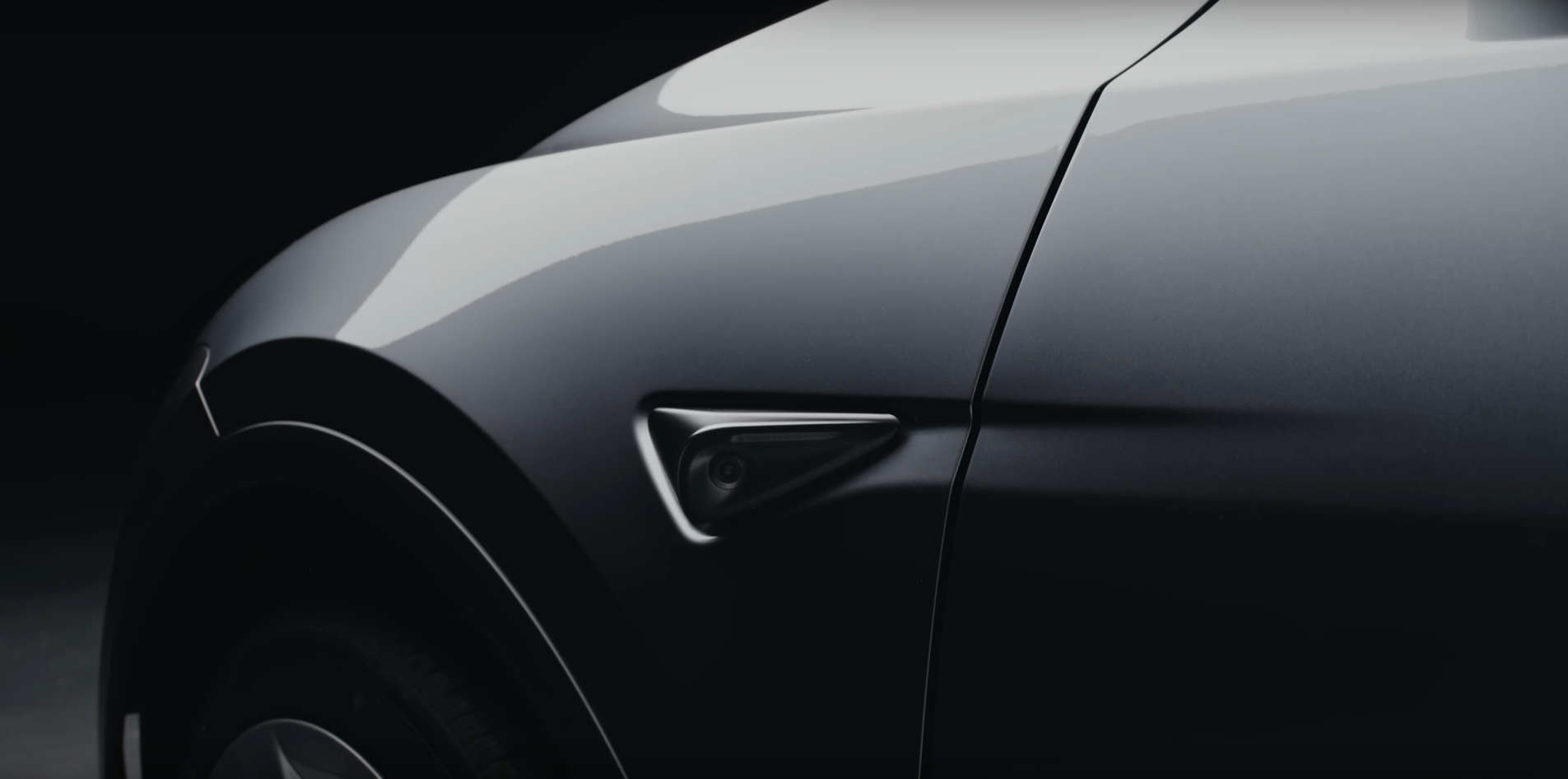
Tesla has added a notable improvement to its Dashcam feature after complaints from owners have pushed the company to make a drastic change.
Perhaps one of the biggest frustrations that Tesla owners have communicated regarding the Dashcam feature is the lack of ability to retain any more than 60 minutes of driving footage before it is overwritten.
It does not matter what size USB jump drive is plugged into the vehicle. 60 minutes is all it will hold until new footage takes over the old. This can cause some issues, especially if you were saving an impressive clip of Full Self-Driving or an incident on the road, which could be lost if new footage was recorded.
This has now been changed, as Tesla has shown in the Release Notes for an upcoming Software Update in China. It will likely expand to the U.S. market in the coming weeks, and was first noticed by NotaTeslaApp.
The release notes state:
“Dashcam Dynamic Recording Duration – The dashcam dynamically adjusts the recording duration based on the available storage capacity of the connected USB drive. For example, with a 128 GB USB drive, the maximum recording duration is approximately 3 hours; with a 1 TB or larger USB drive, it can reach up to 24 hours. This ensures that as much video as possible is retained for review before it gets overwritten.”
Tesla Adds Dynamic Recording
Instead of having a 60-minute cap, the new system will now go off the memory in the USB drive. This means with:
- 128 GB Jump Drive – Up to Three Hours of Rolling Footage
- 1TB Jump Drive – Up to 24 Hours of Rolling Footage
This is dependent on the amount of storage available on the jump drive, meaning that if there are other things saved on it, it will take away from the amount of footage that can be retained.
While the feature is just now making its way to employees in China, it will likely be at least several weeks before it makes its way to the U.S., but owners should definitely expect it in the coming months.
It will be a welcome feature, especially as there will now be more customization to the number of clips and their duration that can be stored.








